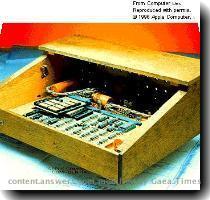Relief over market’s big U-turn gives way to questions over the economy’s prospects in 2010
By Tim Paradis, APThursday, December 31, 2009
Few called market turn, fewer predict it will last
NEW YORK — Few analysts forecast this year’s remarkable stock market rebound as major indexes were plunging to 12-year lows last March. Now, with most experts predicting the pace of stocks’ gains will slow in 2010, there’s reason to believe they will be proven correct.
Stocks began the dramatic turnaround in March after Citigroup Inc. and other big banks said they were making money again, and then climbed at a fairly steady pace as signs of an economic recovery from the Great Recession became more pronounced.
Investor fears about a potential financial system collapse played a big role in the early year slump in stocks. Once it was clear that wasn’t going to happen, the Standard & Poor’s 500 index roared back 64.8 percent from its early March low, the biggest move since the Depression. For the full year, the index rose 23.5 percent, its best showing since 2003.
But sustaining that momentum in the new year likely would require a big drop in the unemployment rate and strong corporate profit gains, along with stable borrowing costs — a combination few analysts are forecasting.
“The easy money has been made already,” said Bill Stone, chief investment strategist for PNC Wealth Management. “You’re not going to see another 65 percent move in the next nine months.”
In the last day of the year, more signs of healing first pleased investors, then had them concerned about the economy’s ability to thrive without government help. Light trading volume exaggerated the market’s moves, sending the Dow Jones industrial average down 120.46, or 1.1 percent, to 10,428.05.
The year’s stats tell an incredible story across the financial markets:
— By March, the Dow Jones industrials had tumbled 53.8 percent from a record high in October 2007 to a low of 6,547.05, its lowest level since 1997. It then rocketed 59.3 percent in the final nine months of the year . The Dow is still down 26.4 percent from its 2007 peak of 14,164.53.
— U.S. stocks have gained about $5.2 trillion in value since the low in March, putting the gain for the year at $2.6 trillion. But the climb was still not enough to give investors a win for the decade. The S&P fell 24.1 percent from 2000-09, its first loss for a decade. S&P says it managed to advance during the Depression thanks to dividend payments.
— A share of Citigroup Inc., one of the banks hit hardest by the 2008 financial crisis and the recession, reached a high early in the year of $7.59, then fell to 97 cents in March. It ended the year at $3.31.
— Technology and financial stocks posted some of the biggest gains in market value in 2009. Among them: Apple Inc., Microsoft Corp., Google Inc., Bank of America Corp. and IBM Corp.
— Stock mutual funds are valued at about $4.6 trillion, up from $4.04 trillion at the beginning of the decade.
— The Chicago Board Options Exchange’s Volatility Index, known as the market’s fear index and a measure of investor worry, is down 45.8 percent for the year, and also down about 76 percent from its high of about 89, reached at the height of the financial crisis in the fall of 2008. It ended 2009 at 21.68.
— The yield on the 10-year Treasury note, used as a benchmark for interest rates on mortgages and other consumer loans, stands at 3.84 percent, up from 2.22 percent a year ago. Investors are no longer fleeing to the safety of U.S. government debt.
— The ICE Futures US dollar index, which measures the dollar against a basket of currencies, fell 4 percent for the year. The dollar gained 4 percent in December on expectations that a strengthening economy will lead to an increase in interest rates and make the dollar a more attractive investment. Analysts expect the dollar will remain strong early in 2010 but are divided over whether it can hold its gains if the economy struggles.
— Gold gained 24 percent for the year, rising as high as $1,227.50 and closing at $1,096.20 as investors looked for high returns ways to shield their money from inflation.
Stock market gains often come months before economic recoveries are confirmed. That’s because investors tend to bet on how they think business conditions will be six to nine months in the future. In downturns during the past 60 years, the S&P 500 index hit its bottom an average of four months before a recession ended and about nine months before unemployment reached its peak.
There are reasons to hope the market will start off 2010 well. In the first January after stocks start to recover from a bear market, the average gain in the S&P 500 index has been 3.7 percent, according to S&P’s records.
But analysts don’t expect a straight line higher, in much the same way that the 2009 rally stalled in June, September and October. And, there are no guarantees about January, especially since companies will be releasing their fourth-quarter earnings.
Earnings are likely to look good on the surface due to what the market calls easy comparisons — when held up against the dismal performance of the fourth quarter of 2008, profits are bound to look better. But businesses have relied on layoffs and other cuts to slash costs for the past year, and investors need to see a pickup in sales for them to believe the market’s 2009 rally wasn’t premature.
Stocks are also likely to turn on companies’ forecasts for the coming quarters. If sales or company predictions fall short of expectations, investors may well decide it’s safer to pull some money out of stocks until it appears the recovery is truly picking up momentum.
Ron Kiddoo, chief investment officer at Cozad Asset Management in Champaign, Ill., said the market can continue its rally through 2010 only if investors see that companies are again hiring, bringing the unemployment rate down for its present 10 percent rate, and that consumers start spending more.
“We can only go on promises of economic growth for so long without actually seeing it take place,” he said.
Kiddoo added, however, that the market could see a tug-of-war because the Federal Reserve will be reluctant to raise interest rates to ward off inflation if the economy doesn’t strengthen. If rates remain at record lows, returns on cash and investments like government bonds will remain weak and create demand for riskier but higher-paying investments like stocks. Investors still have trillions of dollars in cash available, and many are anxious to get better returns than the minuscule yields offered by money market funds and short-term Treasurys.
“It becomes no alternative place to put your money,” Kiddoo said.
Ryan Detrick, senior technical strategist at Schaeffer’s Investment Research in Cincinnati, said the market’s 2009-10 moves could parallel the period from 2003-04, when stocks took off then idled. In 2003, the S&P 500 index gained 26.4 percent as the economy pulled out of recession. Then, in 2004, the S&P 500 index peaked early and sputtered along before ending the year with a 10.7 percent surge in little more than two months.
Detrick expects stocks will end 2010 10 percent to 15 percent higher, but he said he also wouldn’t be surprised to see a drop of 10 percent to 12 percent for certain periods of the year. “You’re going to need to have some pullbacks and some breaks,” he said.
Dan Cook, senior market analyst at IG Markets in Chicago, said he could see the Dow Jones industrials rising about 500 points to the 11,000 level in January but then pull back as the government withdraws some of its economic support, like low-interest loans to banks. He projects the market could fall about 15 percent from where it stands, putting the Dow industrials at the 8,800-9,000 level a year from now.
Cook is concerned that a rally that goes too high, too fast could set investors up for a hefty psychological blow.
“I can only jump so high and then I’m going to hit the ground,” he said. “If I get on a trampoline and I go super high and then fall to the ground, it’s going to be a lot more painful.”
Tags: Debt And Bond Markets, Economic Outlook, Labor Economy, New York, North America, Recessions And Depressions, United States



